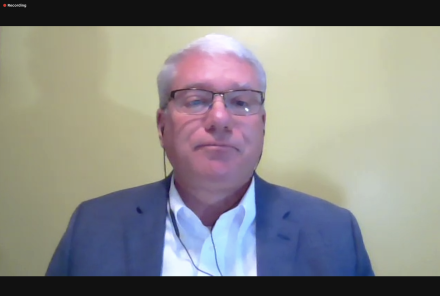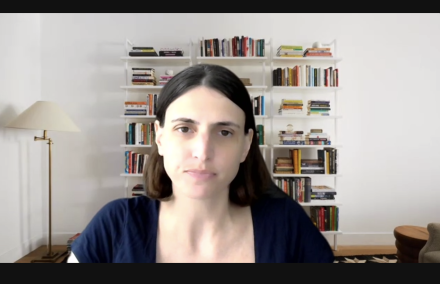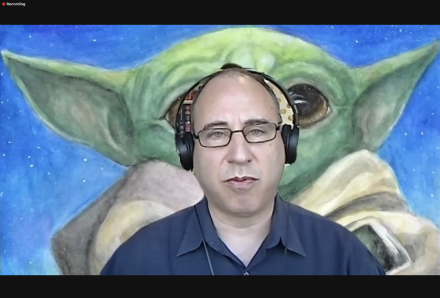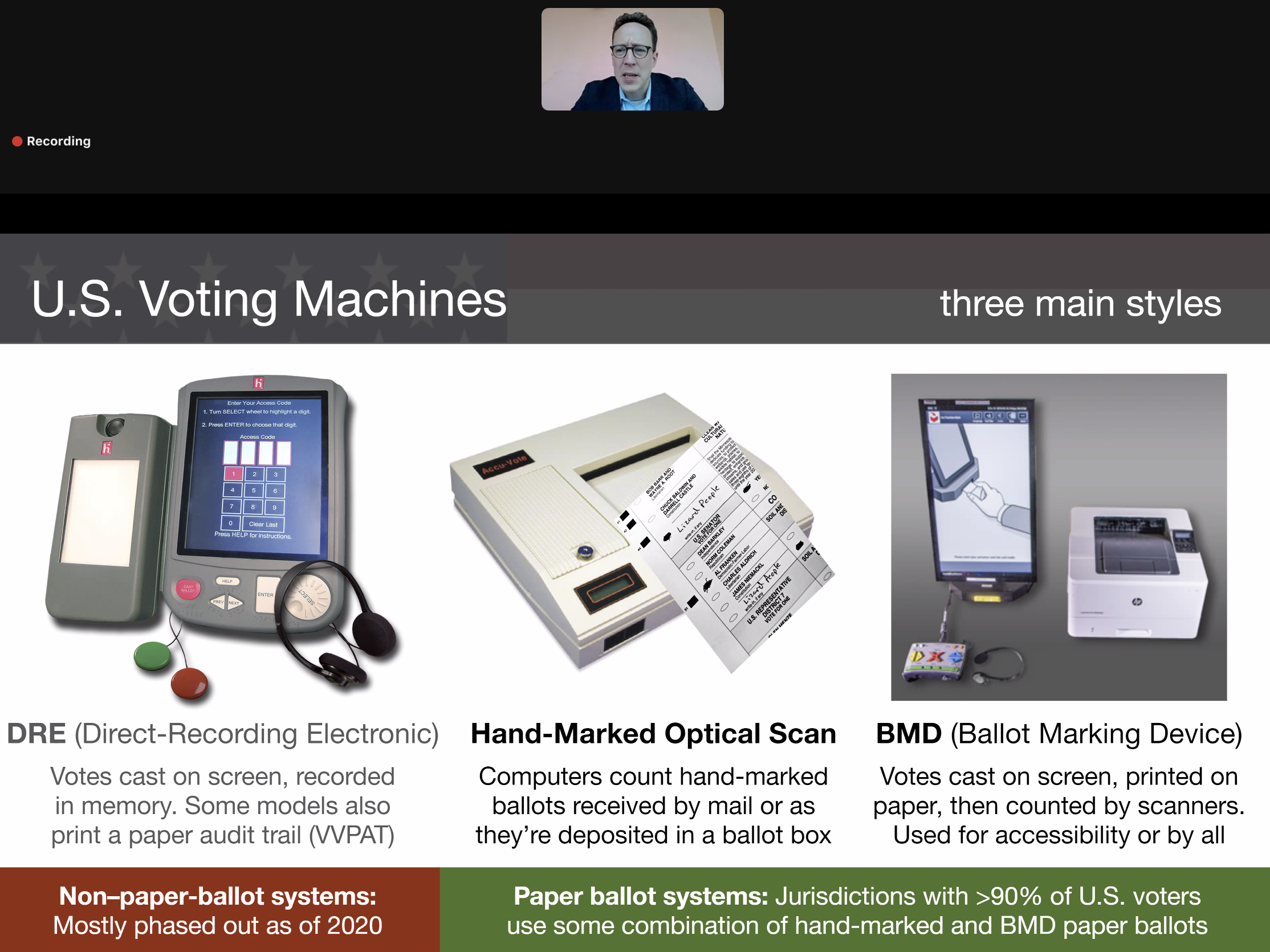Four leading experts in their fields offered diverse views on the role of voting machine technology, and the internet more broadly, in restoring faith in the American electoral process as part of a webinar hosted by Elon Law Professor David S. Levine.
Electronic voting machines have made it easier in recent years for election officials to tabulate ballots and quickly publicize preliminary results.
Despite the widespread adoption of election technology over the past two decades, questions about election system security continue to be asked, particularly in an age where bad actors attack all types of electronic infrastructure across multiple sectors.
The nuances and better understanding of election technology in shaping public perceptions about the integrity of elections was the focus of a webinar on October 19, 2022, moderated by an Elon Law professor who has been part of the public dialogue on the importance of transparency in the American democratic process.
“Engendering Trust in Election Outcomes” was led by Professor David S. Levine. It featured four legal and technology experts, including an executive with Smartmatic, a multinational electronic voting technology firm:
- Eric Goldman is associate dean for research, a professor of law, and co-director of the High Tech Law Institute at Santa Clara University School of Law where he also supervises the Privacy Law Certificate program. His research and teaching focuses on Internet law, and he blogs on that topic at the Technology & Marketing Law Blog.
- J. Alex Halderman is a professor of computer science & engineering and director of the Center for Computer Security & Society at the University of Michigan. His research spans security and privacy, with an emphasis on problems that broadly impact society and public policy, and he has twice testified before Congress and serves as co-chair of the State of Michigan’s Election Security Advisory Commission. In 2019, he was named an Andrew Carnegie Fellow in support of his efforts to strengthen the technological foundations of American democracy.
- Irina D. Manta is a professor of law and the founding director of the Center for Intellectual Property Law at the Maurice A. Deane School of Law at Hofstra University. Manta’s research spans legal issues involving intellectual property, torts, the internet, privacy, national security, and immigration. A graduate of Yale Law School and Yale University, she also co-hosts the dating podcast “Strangers on the Internet”.
- Edwin “Ed” Smith is the director of global services and certification in North America for Smartmatic where he oversees service delivery as well as U.S. federal and state certification. He also serves as a subject matter expert in areas of system development, process improvement, and product enhancement as well as technical pre-sales across all product lines. Smith currently chairs the Elections Infrastructure Sector Coordinating Council organized under the federal critical infrastructure law to facilitate industry-Department of Homeland Security collaboration for the protection of elections infrastructure.
Dozens of people from higher education, industry, and media took part in the early afternoon Zoom webinar. The idea for the program dates to early 2021 when Levine welcomed Antonio Mugica, founder and CEO of Smartmatic, to the “Hearsay Culture” podcast and program Levine hosts at KZSU-FM at Stanford University.

“Computers do well with high volume, tedious, repetitive tasks like tabulating ballots,” Smith said in explaining the way voting machine technology can assist with strengthening public trust in elections. “Hand counting ballots is expensive. And speedy ballot counting helps build confidence in results.”
While panelists at the Elon Law webinar offered competing perspectives on voting machine technology – Halderman shared findings of his own research that discovered vulnerabilities in some voting software – broader consensus started to emerge on fundamental problems that affect trust in outcomes: human psychology and intentional lies that foment suspicion.

“Election misinformation, election denialism, is as old as elections,” Goldman said. “As long as there’s a political payoff to challenging the process, people are going to pursue that payoff for their own self-interest. That’s not unique to the internet or new to the modern era.”
Yet social media and the internet have only enhanced the ability to sow more doubt. And in the words of Manta: “Many people are not really interested in arriving at the truth through a civil dialogue.”

Where does that leave the future of democracy? It may depend on the willingness for families and neighbors and friends to rebuild relationships offline. “There’s certainly a lot of lying going on,” Halderman said in closing the program, “but we can dispense with disinformation much more effectively if we start by bridging this political division that causes people to be so shocked by results that didn’t go their way.”
A follow-up webinar is in the planning stages for the first half of 2023.



